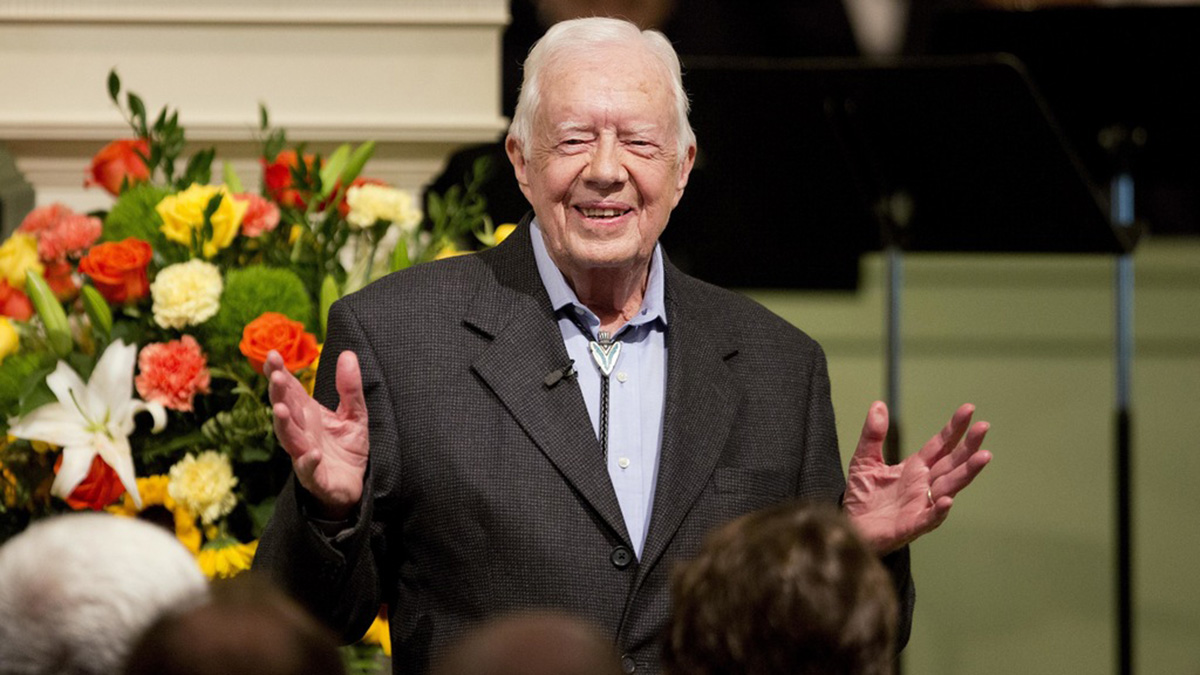Jimmy Carter, now a centenarian, is a living testament to the power of dedication, service and resilience. Born on October 1, 1924, in Plains, Georgia, Carter’s journey from a modest peanut farmer to the 39th President of the United States and then a global humanitarian is nothing short of extraordinary. As he celebrates his 100th birthday, Carter remains an iconic figure who defied expectations, influencing the world far beyond his four years in office. His legacy, spanning diplomacy, humanitarian efforts and personal integrity serves as a lasting inspiration.
10 most interesting things about Carter
1. Peanut farmer to president: Raised on a farm in rural Georgia, Carter grew up in the agricultural heartland of the South. His humble beginnings as a peanut farmer provided him with a deep connection to the land and a profound understanding of the struggles of everyday Americans.
2. Naval officer and nuclear engineer: Carter’s early career included serving as a lieutenant in the US Navy, where he became a nuclear engineer under the tutelage of Admiral Hyman Rickover. His work in the navy’s nuclear submarine program laid the groundwork for his disciplined, methodical approach to problem-solving.
3. Camp David Accords: One of the most significant achievements of his presidency was the 1978 Camp David Accords. Carter played a key role in brokering peace between Egypt’s president Anwar Sadat and Israel’s prime minister Menachem Begin, a landmark peace agreement that still stands as one of the few successful West Asia peace deals.
4. Energy visionary: Carter recognised the looming energy crisis of the 1970s and took bold steps to reduce America’s dependence on foreign oil. He installed solar panels on the White House and promoted energy conservation and alternative energy sources long before climate change became a major global issue.
Impact Shorts
More Shorts5. Humanitarian after the presidency: While many former presidents fade from the public eye, Carter’s post-presidency life is a defining aspect of his legacy. Through the Carter Center, he has been instrumental in fighting diseases like Guinea worm and advancing democratic principles and human rights around the world.
6. Hands-on philanthropist: A long-time volunteer for Habitat for Humanity, Carter didn’t just lend his name but actively participated in building homes for those in need. Even in his 90s, he was seen swinging a hammer, embodying his belief that leadership is about service.
7. Devout Christian and Sunday school teacher: Despite his global fame, Carter remained deeply rooted in his faith. Throughout his life, he taught Sunday school in his hometown of Plains, Georgia, sharing his beliefs with locals and visitors alike. His dedication to faith informed his life choices and policy decisions.
8. Nobel Peace Prize winner: In 2002, Carter was awarded the Nobel Peace Prize for his decades of work in diplomacy and humanitarian efforts. The award recognised his tireless efforts in conflict resolution, human rights and international development long after his presidency.
9. Health warrior and cancer survivor: In 2015, Carter was diagnosed with metastatic melanoma, which had spread to his brain. Incredibly, after treatment, he announced he was cancer-free. His resilience in the face of illness exemplified his indomitable spirit, continuing to defy the odds well into his 90s.
10. Prolific author and thought leader: Carter has authored over 30 books, covering topics from his time in the White House, global diplomacy, faith and even reflections on aging. His writing reflects a deeply introspective and thoughtful man who constantly sought to learn and evolve.
A legacy that transcends time
As Jimmy Carter turns 100, his life is a testament to the enduring power of humility, integrity and service. Whether it was his role in reshaping US foreign policy, his advocacy for human rights or his post-presidential humanitarian efforts, Carter’s impact extends far beyond the confines of his presidency. His commitment to building a better world, brick by brick, is a legacy that continues to inspire generations. From the fields of Georgia to the halls of international diplomacy, Carter’s century of life has been one of purpose, vision and action making him not just a former president but a symbol of hope and perseverance in an ever-changing world.
)